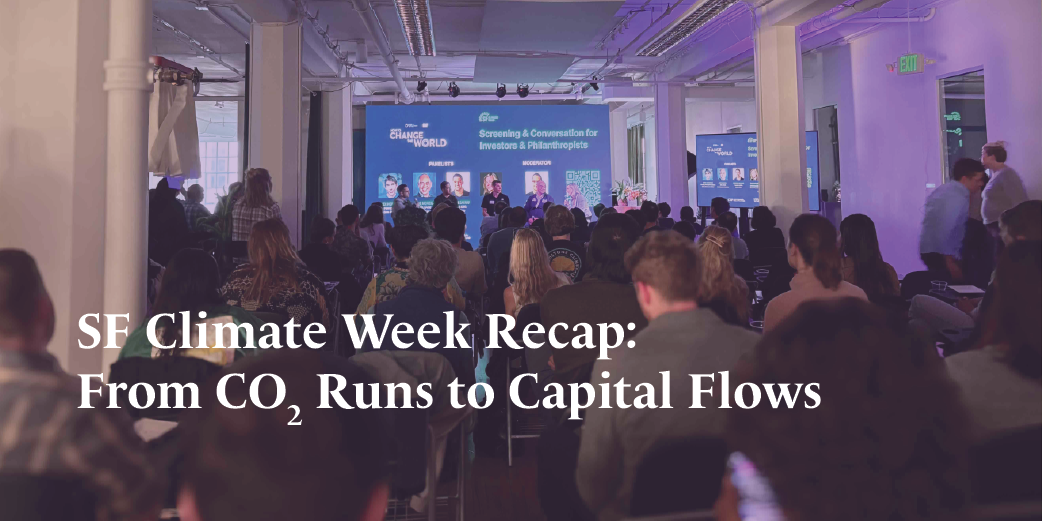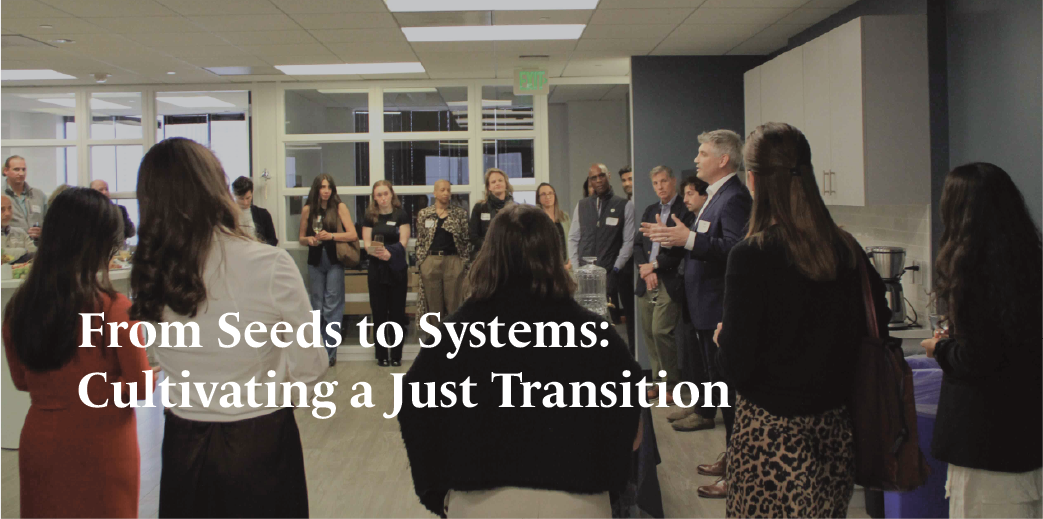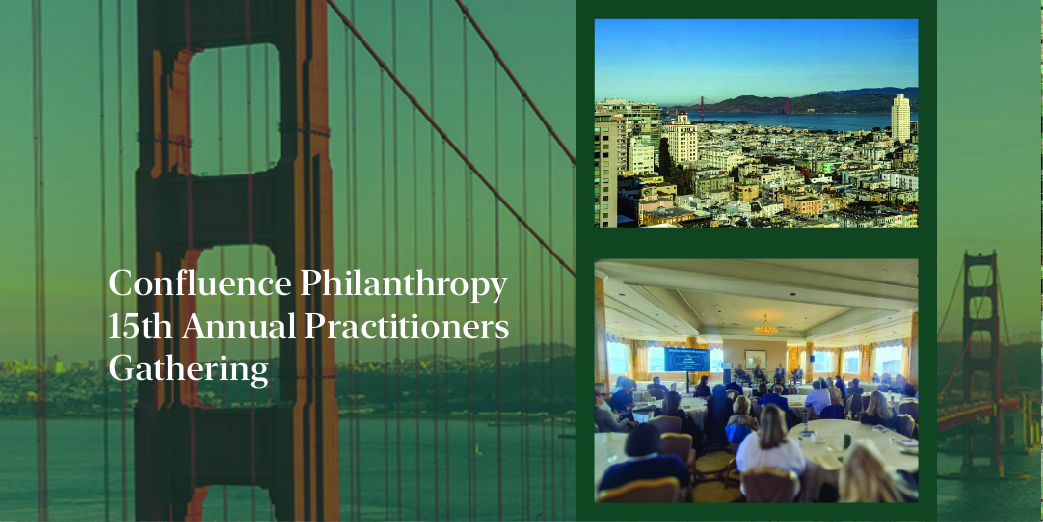Hatch Innovation Lab, By Amy Pearl
August 18, 2015
Every October, I make the trek to San Francisco for SoCap, an international conference on impact investing. It’s held at Fort Mason on the bay with the sea breezes blowing (or howling, as it sometimes happens) while we all catch up and discuss how the practice of investing with the intention of positive social benefit is working. These days, the focus is on lessons learned, new trends and tools, the development of new themes, such as metrics, diversity, gender, improving practice, and new models of enterprise. But, I remember the first years. The topics were, will this work? Is it possible? What will happen if we do this? We had no track record, yet many committed time and money to test the ideas, and, as always, time did tell. A compelling report from 2013 reveals what we all felt would be true – investing with your mind and heart would yield better returns.
Evolution of an Impact Portfolio: From Implementation to Results
This report from Sonen Capital demonstrates to investors that impact investments can compete with, and at times outperform, traditional asset allocation strategies while pursuing meaningful and measurable social and environmental impact results.
These topics have been mirrored by our work at Hatch for a decade, and I’ve been a speaker at SoCap for years – this year will be my sixth. The emphasis of the conference has been on institutional global investing, seeking change at scale with big ideas that were thought to be applicable in every country, such as microfinance. We started out talking with large and small foundations and funds who were creating new impact funds.
Now, the world’s focus seems to have shifted. Two things are happening. One is that, much like “sustainability” became a code word for green-washing, overused by the media to the point of absurdity, the giant financial companies are moving in to claim “impact investing” as an avenue of their own. This indicates that their customers want it, perhaps this is a good shift?
Here is an interesting article by Leslie Christian reacting to the news that the SF-based impact investing research outfit Imprint Capital has been acquired by Goldman Sachs. Here is a quote from the article:
“Many of us know in our hearts that our economic and financial systems are unfair, exploitative, and destructive. To the extent we expect to maximize returns on our money—even while “doing good”—we are exacerbating inequality and ecological breakdown. It is not our god-given right to make money on money. To the extent we want or need to do that, let’s at least share the returns with others who have contributed—employees, customers, suppliers, community, the planet.” –Leslie Christian
The second shift is that many people are looking through a more community oriented, locally focused lens. A little more close-up and personal. This year, I have been asked to put together a panel with the same name as this post: Local Investing is Impact Investing.
In sum, you know you’re on to something when giant corporations emulate you. And, you know something is evolving when the focus narrows and people get more thoughtful.
Times, they are a’changing.
Truly local investing changes your frame of reference. When you might feel the effects of your financial decision on a daily basis, you make different decisions. We should get to decide what happens in our backyards, not in reaction to some distant corporate act, but to proactively shape our neighborhoods, helping build the services and products we want, retaining local identities with locally launched companies rather than big box or off-the-shelf franchises. Local doesn’t only mean nearby. It means identifiable. As in, here as compared to there, and when you say it, people know what you mean. When we have no say (or insufficient capital to stay) the generic brands move in. Our towns end up looking like “Franchise Big Box Town USA.” And, it’s all the same to the folks back at HQ. Hey, it’s just business-as-usual.
Real, long-term, local investing puts capacity in our hands to retain capital, retain identity, and frankly, retain our love of place. It is NOT business-as-usual. And, if where we are today is any indication of our typical business practices, a little “unusual” would be a welcomed change.
In Oregon, as we get ready to help launch a second set of entrepreneurs risking everything (meet Kyle Akin and John MacDougall, for instance) taking on a new company or growing an existing one, we have to take a moment to claim our space on the community capital landscape. We are here. We CAN invest – make decisions – about our local businesses and local economies. Oregon has given us real power and we should step up and wield it with wisdom and pride, even though this legal baby is still a toddler, trying to make its way as it grows up.
The name of the report by Sonen Capital about its practice is “The Evolution of an Impact Portfolio” and the image on the front is a very winding river, turning first one way, then shifting and heading an entirely new direction – making its way around unseen barriers. And evolution is probably the right word. Local investing is in its infancy (again, you might say), and it will evolve. But, I believe that winding river keeps going, right to the sea, because it has a power of its own, like the power of local love, and the power of investing as if we gave a damn.
We need to take care of where we live. To do so, we need to hold the checkbook. Without local investing, communities and citizens don’t really have any power. Even the once-shiny vote has lost its gloss. We need to grasp the possibilities of local investing, and act. Wisely, responsibly, eyes open, but act.
In our own state, people who live in Oregon can at least register on Hatchoregon.com (click that you live in Oregon). This way you can get updates and view real prospectuses from local businesses, Oregon-grown. Probably in your neighborhood, city, or county. You make no commitment when you register, but you also claim your right to invest when you want to, if you want to. And, you at least raise your hand and say, “I can if I want to!”
I like to tell this imaginary story. You and your family are sitting around your Sunday breakfast table, considering going to the Farmer’s Market or maybe some garage sales. Your eldest looks up and says, “Hey, look at all the local investment opportunities in town this week! Let’s go check some of them out!” And off you go, to check out potential investments the whole family can discuss.
How cool is that?
See full article on Hatch Innovation Lab


